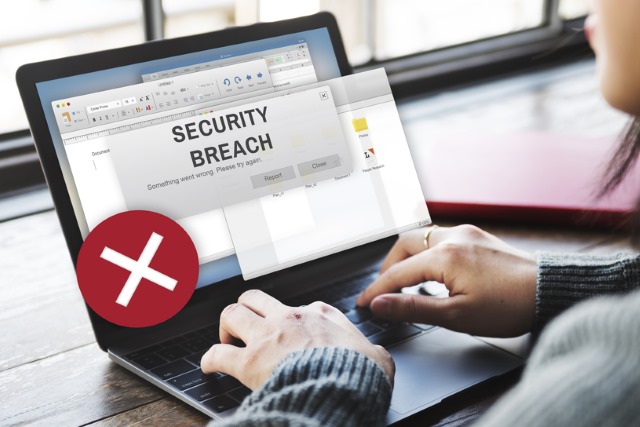
How access monitoring keeps providers at bay from data breaches
Health care data breaches affected almost 250 million people from 2005 to 2019. But there are ways your medical practice can prevent these breaches and protect your patients’ private health information. Access monitoring is one such way.
As its name indicates, access monitoring occurs when a person or system’s use (access) of a computer system is evaluated (monitored). It’s a process that observes and analyzes what happened when a user accessed a system during a session.

As we go into 2023, corporate aposematism is a worthy consideration
Despite the endless amount of information that is available on cyber security and ransomware, alongside technology providers waxing lyrical about breach prevention, the view that "it’ll never happen to us" is still prevalent -- not just among smaller businesses, but surprisingly in bigger organizations too.
So, when the breach actually happens, and the bad actors demand a ransom, frequently, organizations’ reflex reaction is to make the ransom payment as a way of "making it go away".

How fake data can help to combat breaches [Q&A]
September this year marked five years since the notorious Equifax data breach which exposed the social security numbers, birthdates, credit card details, and more of millions of customers.
But how much has the industry learned from this breach? And what measures can be used to help avoid similar issues in the future? We spoke to Ian Coe, co-founder at Tonic.ai to find out why fake data might be the answer.

How to tell your customers that you've been hacked [Q&A]
The short-term costs of a cyberattack are significant. Investigating and containing a breach, rebuilding IT systems and implementing new security controls, as well as the loss of productivity, can all cause severe financial strain.
However, the long-term costs of a breach are often even more damaging. Enterprises that do not handle an attack well can suffer a number of further consequences, including reputational damage, a loss of customer loyalty and a drop in share prices.

Uber suffers 'cybersecurity incident' with hackers gaining access to internal systems and vulnerability reports
Uber is working with law enforcement after it became the latest company to fall victim to a cyber attack. Hackers were able to breach its internal systems and gain access to a range of data including emails, vulnerability reports, its HackerOne bug bounty program and more.
The attackers were also able to access Uber's Slack server, going as far as posting messaging to it. At the moment, it is not clear whether customer data has been exposed in the attack which seems to have come as the result of extracting passwords from an employee via social engineering.

Samsung warns of a security breach that gave hackers access to US customer data
Samsung has revealed limited details of a security incident that took place earlier in the year, exposing the personal data of customers in the US.
The technology giant says that the data breach took place back in July when "an unauthorized third party acquired information from some of Samsung's US systems". No details about who may have been responsible have been released, and Samsung has issued a warning for customers to exercise caution.

How decentralized storage can help prevent data breaches [Q&A]
According to a recent IBM report the average cost of a data breach is now $4.35 million. If enterprises don't take steps to protect personal data effectively they risk losing not just money but also the trust of their customers.
We spoke to Saswata Basu, founder and CEO of 0Chain, to discuss how decentralized storage can help to address the problem.

Twilio hack led to compromise of 2FA app Authy
Earlier this month, messaging service Twilio suffered a serious data breach following a "sophisticated social engineering attack". After using phishing attacks on company employees, hackers were able to access user data, but it seems that the impact of the hack was more widespread.
Twilio has now revealed that the attackers also compromised the accounts of some users of Authy, its two-factor authentication (2FA) app. Although the number of users affected by the breach is relatively small, the implications are very serious and will dent confidence in the company.

Healthcare attackers switch to smaller targets
While large healthcare providers have lots of juicy data to tempt cybercriminals, they are also likely to have strong defenses.
It's not too surprising then that a new report from managed detection and response provider Critical Insight shows that in the first half of this year attackers have shifted their attentions to smaller hospital systems and specialty clinics that lack the same level of security preparedness, staff size, or budget.

Plex suffers data breach; third-party gains access to emails, usernames and more
Plex has emailed its users to warn about a security indecent it has become aware of. While the subject line of the email refers to a "potential data breach", the body goes on to talk about suspicious activity and a third-party gaining access to part of a database.
The company says that the exposed data included emails, usernames and encrypted passwords. Although all passwords were secured and hashed, all Plex users are required to change their security credentials out of an "abundance of caution".

Pssstt... Wanna buy an identity? The price of data on the dark web
We all know that stolen information is traded on the dark web, and new research by Trustwave looks at what is available and how much it costs. It also uncovers the additional services that are being offered to make it easier to commit fraud.
Details of a stolen credit card can be bought for as little as $8. Much more valuable though is a card with 'fullz' -- extra information on the victim that makes the card more usable. These can cost up to $70.

94 percent of companies have had security incidents with production APIs
According to a new report 94 percent of companies have experienced security problems in production APIs in the past year, with 20 percent saying the organization suffered a data breach as a result.
The latest State of API Security Report from Salt Security also finds that found that API attack traffic has more than doubled in the past 12 months with a 117 percent increase. In the same period overall API traffic grew 168 percent, highlighting the continued explosion of enterprise API usage.

Average cost of a data breach increases by 16 percent
A new report released today by ForgeRock shows the average cost of a breach in the US has increased by 16 percent to $9.5m, making the US the costliest place in the world to recover from a breach.
It also reveals a massive 297 percent surge in breaches caused primarily by security issues associated with supply chain and third-party suppliers and representing almost 25 percent of all breaches.

NFT marketplace OpenSea confirms customer data leak
Popular NFT marketplace OpenSea has started issuing emails to its users warning them of a leak of customer data.
OpenSea says that an employee of its email delivery vendor, Customer.io, abused their position to access and share email addresses with an unauthorized third party. The company has not given an indication of the number of users affected by the data breach, but has warned of an increased risk of phishing attacks. With the number of active users of OpenSea reported to be around 2 million -- and this does not include people who have just signed up for a newsletter -- the potential impact is huge.

Human error to blame for eight out of 10 data breaches
New analysis by CybSafe of data from the UK Information Commissioner's Office shows 80 percent of data breaches reported in 2021 were caused by user error.
A total of 2,692 reports were sent to the ICO last year 80 percent of which could be attributed to actions taken by end-users, though this is down from 90 percent in 2020.
